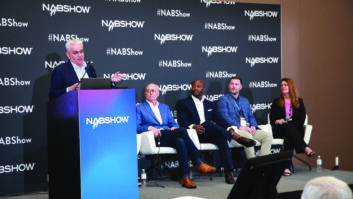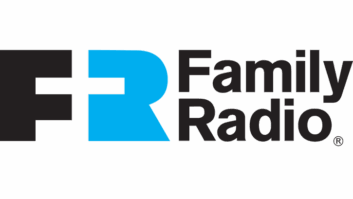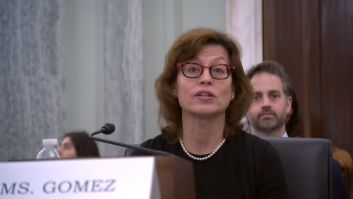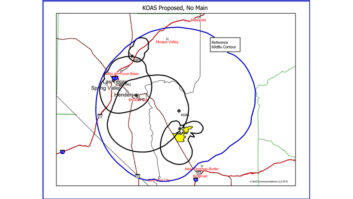Nearly 300 commenters have already flooded the FCC’s website since Chairman Brendan Carr asked for public input on ways to eliminate burdensome regulations.
Experts say much of the FCC work will likely focus on commercial broadcast, but it could bring changes for amateur radio too. A number of comments received so far have focused on amateur radio and the fear that ham radio could be at risk. Possible loss of spectrum is among the concerns.
There are approximately 700,000 licensed U.S. ham operators. Supporters say amateur radio operators are a valuable asset during times of emergency response, when other forms of communication may be compromised.
In a review of responses from the ham radio community in the docket, many advocate for keeping the current licensing requirements for amateur radio in place. Note that some of the replies spelled out below have been edited for brevity and clarity.
[Related: “What’s Up With the FCC’s ‘Delete, Delete, Delete’ Initiative?“]
Shaun P. Carlson (KF0IBC) told the commission that the reduction of regulations and easing of administrative burden is admirable and important. It’s also important, however, to maintain some regulations to ensure efficacy and prevent the abuse of shared resources.
“In the case of amateur radio, I would strongly encourage the commission to keep the license structure in place and retain the frequency allocations provided to amateur radio operators today,” Carlson wrote.
John Fiske, a licensed amateur since 2006, says ham radio is more than a hobby, it is a community. He requests the FCC to consider keeping all license testing requirements in place.
“All of us who hold any level of license worked hard to achieve each one. To remove the licensing requirements could create an issue similar to the CB Band and render the amateur radio frequencies nearly useless,” he told the commission.
Fiske also asks the FCC to keep the current band plans — especially in the HF and VHF spectrums. He says the recent disasters throughout the United States and the world have highlighted the need for Amateur Radio Operators.
“We spend a large amount of time and resources to make sure our stations and systems are ready to operate at any time. In closing, remember that amateur radio provides an essential communication tool for our nation and our communities. To reduce or eliminate the parts of the radio spectrum we use would reduce our ability to serve our nation and communities in times of need,” Fiske said.
Jim Reed from “Ham Radio Prep” said on a recent episode that certain ham bands, like 900 MHz, could be at risk of being repurposed and put up for auction for wireless services. He said he doesn’t believe it will happen, but the 220 MHz band is another area for the ham radio community to watch.
Florida resident Carl Brink said he understands the value of having a dispersed, robust communication network. He wrote: “Deregulating amateur radio bands is not in the best interest of the public. Commercially available bands have more bandwidth than they need, and this would reduce a vital free public service staffed by trained volunteers.”
[Related: “Six Ideas for the FCC to Consider“]
Not all commenters are in favor of maintaining the current licensing structure for amateur radio in the United States. Rusty Shackelford says he is in favor of opening up ham radio.
“There should not be a license requirement. It should be seen as free speech, and also, federal agencies don’t make law. Bureaucrats and their rule-making is unconstitutional. Congress must be the only ones who make law, and executive agencies enforce the law, and then the courts judge it when it is enforced.
“The FCC is unconstitutional when they make, judge and enforce their own rules. I like ham radio, but the requirement of a license is wrong,” Shackelford told the commission.
Comments to the commission from Peter Gill (KJ5EGO) indicate he has reached a similar conclusion. “The three-tiered license process is a burdensome regulation for amateur radio operators, and the current license structure limits innovation and prevents licensed operators from serving their country and community in times of disaster.”
Gill proposes streamlining licensing so that the number of license tiers be reduced to two: General and Amateur Extra, and to convert all current Technician, Novice Advanced, and Technician Plus license holders to General status.
“These people make up 51% of the licensed amateurs in the U.S.,” said Gill. “Making the change will level the playing field for 80% of the licensed people to access the same frequencies, while the remaining 20% in the Amateur Extra license class will have additional frequency allocation to use for the advancement of telecommunications science.
“This will open up more modes of communication to qualified, licensed citizens and encourage innovation across the radio spectrum which drives America forward,” Gill commented.
However, the majority of comments in the docket appear to echo those of Joseph Frailey (AA5EA): “While I understand and support the goal of eliminating unnecessary regulatory burdens, I caution the commission against any deregulatory action that would impair, limit or reallocate resources, especially spectrum currently reserved for amateur radio. Amateur radio is not a legacy system, it’s a living, breathing national asset.
“It operates at no cost to the taxpayer while providing immense value in terms of public safety, technical innovation, emergency communications and educational outreach,” Frailey said.
Frailey concluded his comments by telling the commission that one of the benefits of ham radio is the new innovations it can bring to communication technology. “Countless careers in electrical engineering, communications, cybersecurity and aerospace trace their origins to amateur radio. It’s often a gateway to American innovation and far from being obsolete, hams today are experimenting with mesh networks, SDR, digital modes, satellite relays and weak-signal propagation.”
Comments to GN Docket 25-133 are due April 11.






